While Western medicine offers effective treatments, Traditional Chinese Medicine (TCM) provides a natural, drug-free approach to address the underlying imbalances that contribute to acne.
This article explores the principles of TCM, its perspective on acne, and the herbal remedies and techniques it employs.
Understanding Acne in Traditional Chinese Medicine
In TCM, any skin condition is often viewed as an external manifestation of deeper internal imbalances and the same applies to Acne. These imbalances can involve excess heat, dampness, phlegm, or stagnant blood, disrupting the body's harmonious flow of Qi (energy) and blood.
I have developed 'The Teen Acne Project', a support program on Sydney's Northern Beaches.
I offer this guided program for teens to manage their acne in 4-6 weeks that's natural and Chinese Herbal Medicine based, including lifestyle support. I have SEVERAL WAYS to make it EASY for your or your teen to take Chinese Herbs WITHOUT TASTE. Would you be interested?
The first step is to complete the Skin questionnaire and you can access it here.
Or email me at the clinic with the subject line "Skin"
Identifying Patterns of Imbalance
The Registered Practitioner's value is to properly assess using pulse and tongue readings and give a precise TCM diagnosis. Their role is to come to a conclusion as to what elements are involved for each patient, these might include:
1. Heat Accumulation: This pattern is characterized by red, inflamed pimples, often with pus. It signifies an excess of heat in the body, typically related to hormonal fluctuations or dietary factors.
2. Dampness and Phlegm: This pattern manifests as greasy skin and pustules that are slow to heal. It is associated with poor digestion, leading to an accumulation of dampness and phlegm.
3. Stagnant Blood: Acne with dark, stubborn lesions suggests blood stagnation. This pattern may be linked to hormonal irregularities or emotional stress.
4. Spleen Qi Deficiency: Weakness in the Spleen Qi, responsible for digestion and nutrient absorption, can lead to acne. This pattern often presents with pale, loose stools.
Because Chinese Medicine is a wholistic approach, it acknowledges each patient is different or individual and may have differing TCM patterns between two acne cases that seem exactly the same. For example one patient might have a Heat pattern Acne and another patient could have a Dampness and Phlegm pattern. The practitioner's value is in making the precise diagnosis and then correct prescription of Chinese Medicine to follow each patient.
Herbal Formulas in TCM used to support Acne
1. Huang Lian Jie Du Tang: This herbal formula helps clear heat and toxins from the body, making it useful for addressing acne associated with heat accumulation.
2. Lian Qiao Bai Du Pian: This formula is effective for reducing inflammation, clearing heat, and resolving toxins. It's often used for cases of acne with signs of heat and dampness.
3. Xue Fu Zhu Yu Tang: Known for invigorating blood circulation, this formula is employed when acne is associated with dark or purple spots and scarring.
Acupuncture and Acne
Acupuncture stimulates specific points on the body to restore the flow of Qi and blood. In treating acne, it can:
1. Regulate Hormones: Acupuncture can balance hormone levels, addressing one of the root causes of acne.
2. Reduce Inflammation: By promoting blood flow and reducing inflammation, acupuncture aids in healing acne lesions.
3. Stimulate Detoxification: Acupuncture supports the body's natural detoxification processes, helping to clear heat and toxins associated with acne.
4. Cosmetic Acupuncture for scarring: There's a specific type of acupuncture for the face called Cosmetic Acupuncture and it can be applied to patients with acne. Usually body points are also used from the previous categories. Then we apply needles to the acne scars themselves to promote healing and repair of the skin via increased blood flow to scar sites.
Lifestyle and Dietary Considerations
In TCM, lifestyle and diet play crucial roles in skin health. Recommendations may include:
• Balanced Diet: Emphasize whole, unprocessed foods and avoid excessive consumption of sugar, greasy or spicy foods.
• Hydration: Drink plenty of water to support proper digestion and detoxification. Herbal Teas also count as water and cooling herbal teas such as Dandelion or Peppermint are helpful in clearing the redness from the skin.
• Stress Management: Practices like Qi Gong, Tai Chi, and meditation can help reduce stress and promote emotional well-being. Stress can cause flare ups of skin conditions such as acne.
Traditional Chinese Medicine offers a holistic approach to acne treatment, addressing the root causes of imbalances within the body. By identifying patterns and employing herbal remedies, acupuncture, and lifestyle adjustments, TCM provides an effective and natural alternative for those seeking relief from acne. As always, consult an AHPRA registered TCM practitioner for the most accurate and personalised treatment.
References:
1. Maciocia, G. (2015). The Foundations of Chinese Medicine. Churchill Livingstone.
2. Bensky, D., & Barolet, R. (1990). Chinese Herbal Medicine: Formulas & Strategies. Eastland Press.
3. Flaws, B., & Sionneau, P. (2001). The Treatment of Modern Western Medical Diseases with Chinese Medicine. Blue Poppy Press.


